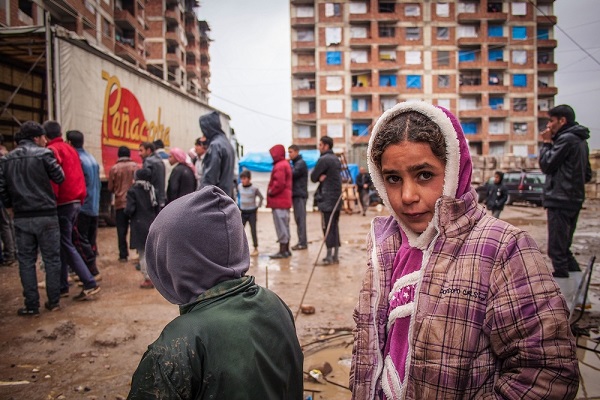

ISIS’ Sex Slave Market: The Brutal Abuse of Women and Girls
They were held for days, weeks, or months in confinement in census-boarding facilities, and then young women and girls were transported in smaller batches around Iraq and Syria to be sold as sabayas, or sex slaves. Those who resisted were often “dragged out by their hair,” or coerced with the threat of pistols and daggers on themselves or sisters and relatives in the same facility. One 15 year old Yazidi girl who was able to escape enslavement recalls being told “…that Taus Malik’ — one of seven angels to whom the Yazidis pray — ‘is not God. He…is the devil and that because you worship the devil, you belong to us. We can sell you and use you as we see fit” (NY Times, 2015).
A few months later, the Islamic State stated through their online magazine that enslavement of Yazidi girls and women was explicitly planned and executed based on their highly dubious interpretation of Shariah law, as part of an effort to reward fighters who participated in the Sinjar operations. Experts and scholars on Islamic theology have roundly rejected this interpretation of the Quran and emphasized that Islam does not justify slavery, but to these fighters, the girls were seen as prizes. Those who escaped recalled fighters receiving girls according to rank, with some obtaining multiple girls at a time on “slave market day.” One survivor, at only 12 years old, recounted that her abuser “explained” that raping her would bring him closer to God. Before and after each assault, he would kneel beside the bed that she was gagged and bound to, praying to “bookend the rape with acts of religious devotion” (NY Times, 2015).
The New York Times story significantly increased awareness of the Islamic State’s formalized market for sexual slavery. It also helps illustrate the systematic abuse that women and girls face in times of war and conflict globally, however efforts are made (or not made) to justify it. Recently, the UN Special Representative on Sexual Violence in Conflict reported that 19 countries and 45 armed groups were suspected of using conflict-related sexual violence as a tactic of war. MSF is not working in IS controlled areas, but in the past decade alone, MSF has treated more than 100,000 survivors of sexual violence in a number of these contexts. It’s been one year since the attacks on Mount Sinjar, and nearly 3,144 Yazidis are still being held, many through this formalized infrastructure of a sex slave market. While on the agenda of governments world-wide as a threat to domestic security, ISIS’ treatment toward women and girls on the front-lines of conflict had previously garnered little attention and spurred little action. The voices of survivors caught in the cross-hairs of ISIS’ abuse must be vocalized in an effort to bring their dehumanized war tactics to an end.
#tomorrowneedsher #womenshealth #Syria #Iraq
Because Tomorrow Needs Her focuses on some of the impediments to women’s health, exposing injustices that disproportionately affect women and girls around the world.



